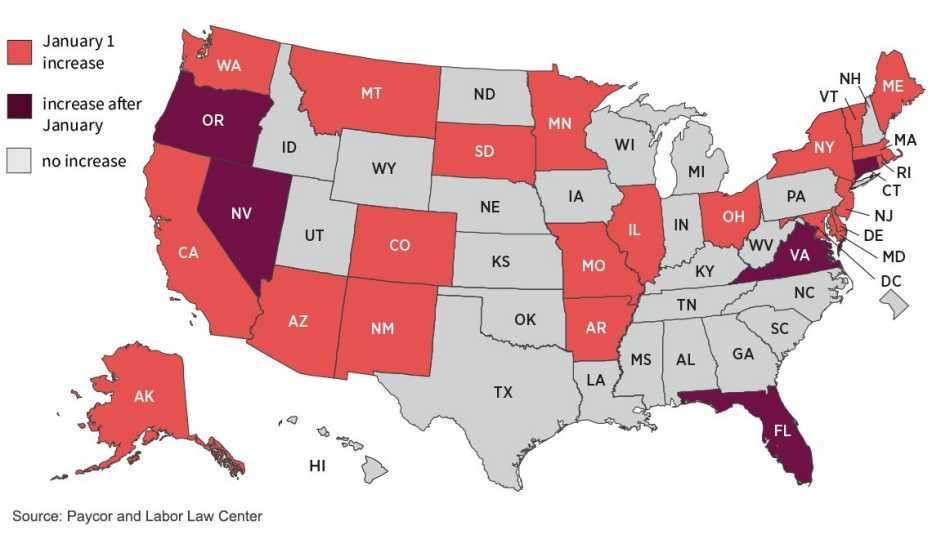
Washington state now leads the nation with a $16.66 minimum wage after 21 states implemented wage increases on January 1, 2024. This pushes Washington ahead of both California ($16.50) and New York ($15.50-$16.50), which have historically been among the highest-paying states.
The wave of increases will benefit over 9.2 million workers across the country, according to the Economic Policy Institute. While the federal minimum wage remains fixed at $7.25 since 2009, states continue taking independent action to boost worker pay.
Among the notable increases:
- Washington: $16.66
- California: $16.50
- Connecticut: $16.35
- New Jersey: $15.49
- Delaware: $15.00
- Illinois: $15.00
- Rhode Island: $15.00
Some cities have set even higher minimums than their states. Seattle now requires employers to pay at least $20.76 per hour, while Flagstaff, Arizona mandates $17.85.
Additional wage hikes are scheduled throughout 2024. Oregon will adjust its rate in July based on the Consumer Price Index, while Florida plans to raise its minimum to $14 per hour in September. Washington D.C., which currently requires $17.50 per hour, will also implement an increase in July.
The increases come through various mechanisms - some states like Arizona and Minnesota have automatic annual adjustments, while others like Missouri enacted changes through voter ballot measures.
This trend of state-level wage increases continues to expand the gap between state and federal minimums, with many states now requiring more than double the federal rate of $7.25 per hour.